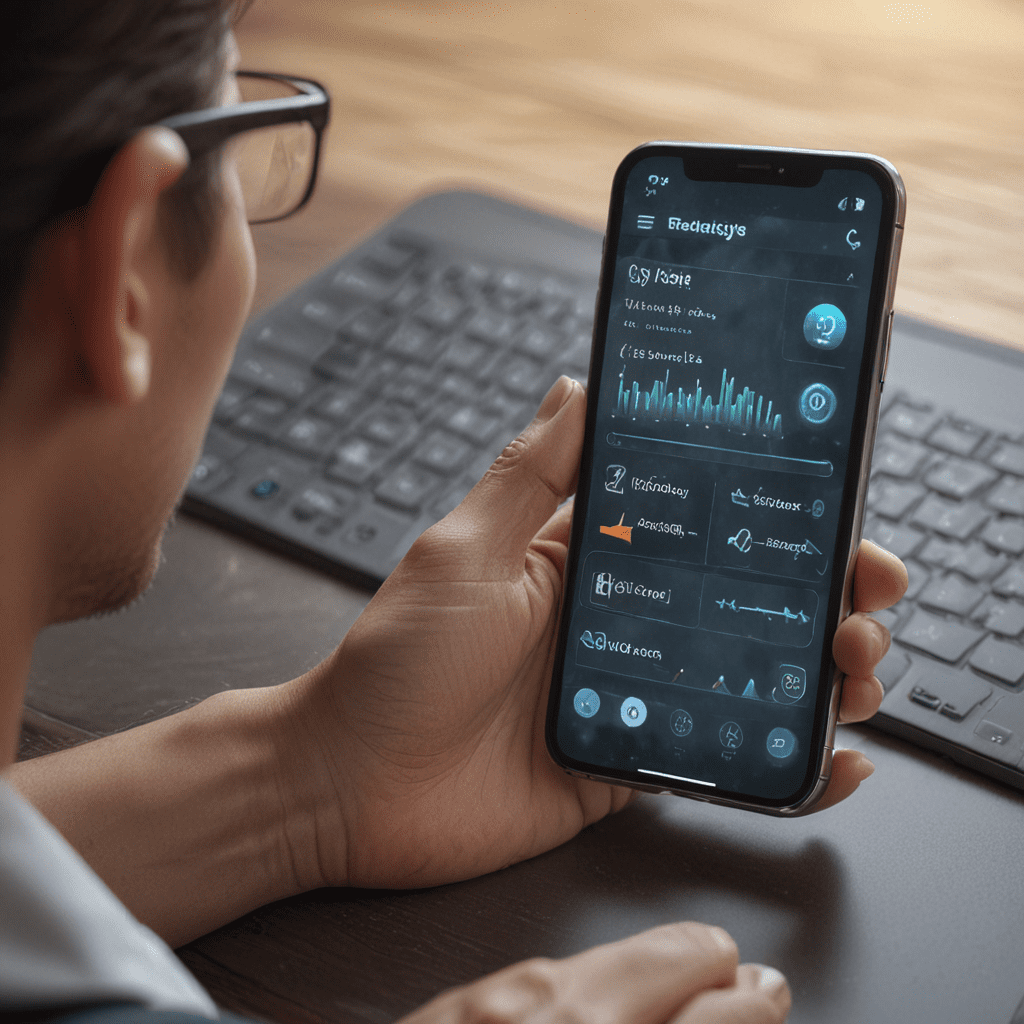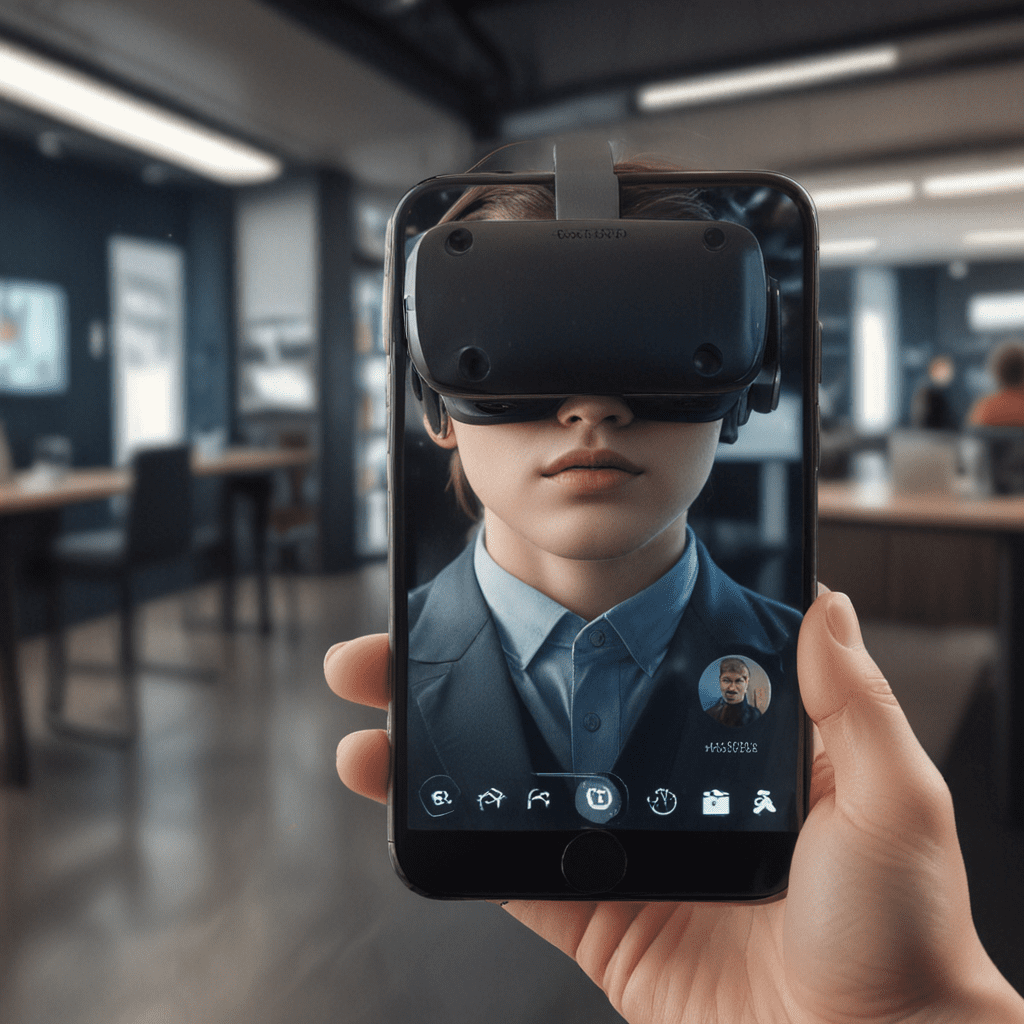
1. Introduction
In the modern era of digitalization, mobile apps have become indispensable tools for various aspects of our lives, including personal development and coaching. Mobile app development for personalized coaching offers unique advantages for individuals seeking tailored guidance and support on their journeys toward personal growth and transformation. This article delves into the benefits, tools, strategies, and best practices for developing effective mobile apps for personalized coaching.
2. Benefits of Mobile App Development for Coaching
Mobile app development for coaching provides numerous benefits that enhance the coaching experience for both coaches and clients. These include:
Convenience and Accessibility: Mobile apps allow clients to access coaching sessions and resources anytime, anywhere, eliminating scheduling conflicts and providing convenience.
Personalized Content Delivery: Apps can leverage data analytics to tailor coaching content specifically to each client's needs, preferences, and progress, resulting in highly personalized and relevant guidance.
Interactive and Engaging Experience: Mobile apps offer interactive features such as quizzes, progress tracking, and gamification, making the coaching process more engaging and motivating for clients.
Real-Time Communication: Apps facilitate real-time communication between coaches and clients, enabling timely feedback, support, and accountability.
Cost-Efficiency: Developing a mobile app can be more cost-effective than traditional coaching methods that require in-person sessions or extensive travel.
3. Tools for Mobile App Development
Selecting the right tools is crucial for effective mobile app development. Popular tools for building coaching apps include:
Cross-Platform Development Frameworks: React Native, Flutter, and Ionic enable developers to create apps for multiple platforms (iOS and Android) with a single codebase, saving time and resources.
Backend Services: Firebase, AWS Amplify, and Azure App Service provide cloud-based services for data storage, user authentication, and API management.
Push Notifications: Tools like OneSignal and Pushwoosh allow apps to send personalized push notifications to clients, reminding them of appointments, providing timely updates, and encouraging engagement.
4. Strategies for Personalizing Coaching Content
Personalizing coaching content is key to maximizing the app's impact. Effective strategies include:
User Profiling: Collecting information about clients' goals, interests, learning styles, and challenges helps tailor content to their specific needs.
Adaptive Learning: The app's AI algorithms can adjust the content and difficulty level based on the client's progress and feedback, ensuring optimal engagement and learning.
Content Curation: Curating a library of coaching resources (e.g., articles, videos, exercises) allows clients to choose content that resonates with their interests and aligns with their goals.
5. Incorporating Artificial Intelligence (AI) and Machine Learning (ML)
AI and ML play a significant role in personalizing the coaching experience. These technologies enable apps to:
Provide Personalized Feedback: AI algorithms can analyze client responses and interactions to provide tailored feedback, identifying areas for improvement and encouragement.
Track Progress and Identify Patterns: ML techniques can track client progress and identify patterns in their behavior, helping coaches tailor their guidance and support.
Recommend Personalized Content: AI can analyze user preferences and suggest coaching content that is most relevant and useful to their journey.
6. User Experience (UX) and User Interface (UI) Design
An intuitive and user-friendly design is essential for effective coaching apps. UX designers focus on creating a seamless and enjoyable user experience, while UI designers ensure the app's visual appeal and ease of navigation. Key considerations include:
Simple and Intuitive Navigation: The app's menu and layout should be organized logically, allowing users to easily find the information they need.
Responsive Design: The app should adapt seamlessly to different screen sizes and orientations, ensuring optimal functionality on all devices.
Clear and Concise Language: Using straightforward language and concise instructions enhances user comprehension and reduces confusion.
- Personalized Interface: The app can display user-specific data, such as progress reports and daily reminders, creating a personalized and engaging experience.
7. Data Analytics and Tracking
Data analytics are crucial for understanding user behavior, optimizing app functionality, and personalizing the coaching experience. Tracking metrics such as user engagement, content consumption, and progress toward goals provides valuable insights. These insights can be used to:
Identify User Trends: Analysis of user data can reveal patterns and trends in behavior, helping coaches tailor their content and strategies accordingly.
Measure Progress and Set Realistic Goals: Tracking client progress enables coaches to adjust goals and provide timely support, ensuring a realistic and achievable coaching journey.
Conduct A/B Testing: Experimenting with different app features and content allows coaches to test their effectiveness and make data-driven decisions to enhance the user experience.
8. Integration with Other Platforms and Devices
Integrating with other platforms and devices expands the functionality of coaching apps and enhances user convenience. This includes:
Social Media Integration: Connecting the app with social media platforms allows users to share their progress and connect with other members of the coaching community.
Wearable Device Integration: Synchronizing the app with fitness trackers or smartwatches enables the monitoring of health and activity data, providing a holistic view of the client's well-being.
CRM Integration: Integrating with customer relationship management (CRM) systems allows coaches to manage client information, track interactions, and provide personalized support.
9. Marketing and Distribution Strategies
Marketing and distribution strategies are essential for reaching the target audience and ensuring the success of the coaching app. These include:
App Store Optimization (ASO): Optimizing the app's title, description, and keywords increases its visibility in app stores, making it easier for potential users to discover.
Content Marketing: Creating valuable content, such as blog posts, videos, and social media updates, establishes the app as a credible source of information and attracts potential users.
Partnerships and Collaborations: Partnering with influencers, bloggers, or other organizations can extend the app's reach and credibility.
- Paid Advertising: Running targeted advertising campaigns on platforms like Google Ads or Facebook Ads can generate leads and drive app downloads.
10. Case Studies and Success Stories
Case studies and success stories provide real-world examples of the benefits and impact of mobile app development for personalized coaching. They demonstrate how apps have helped individuals achieve their goals, transform their lives, and experience positive outcomes. Sharing these stories can inspire potential users and build trust in the app's effectiveness.
Frequently Asked Questions (FAQ)
1. What types of coaching are suitable for mobile app development?
Coaching apps can be developed for a wide range of coaching niches, including personal growth, career development, health and wellness, and relationship coaching.
2. Are there any technical skills required to develop a coaching app?
Developing a mobile app requires technical skills in software development, app design, and backend management. However, using cross-platform development frameworks and cloud-based services can simplify the process.
3. How much does it cost to develop a personalized coaching app?
The cost of developing a coaching app varies depending on the complexity of features, design requirements, and the platform being targeted. It's recommended to consult with app development professionals to obtain a detailed cost estimate.


